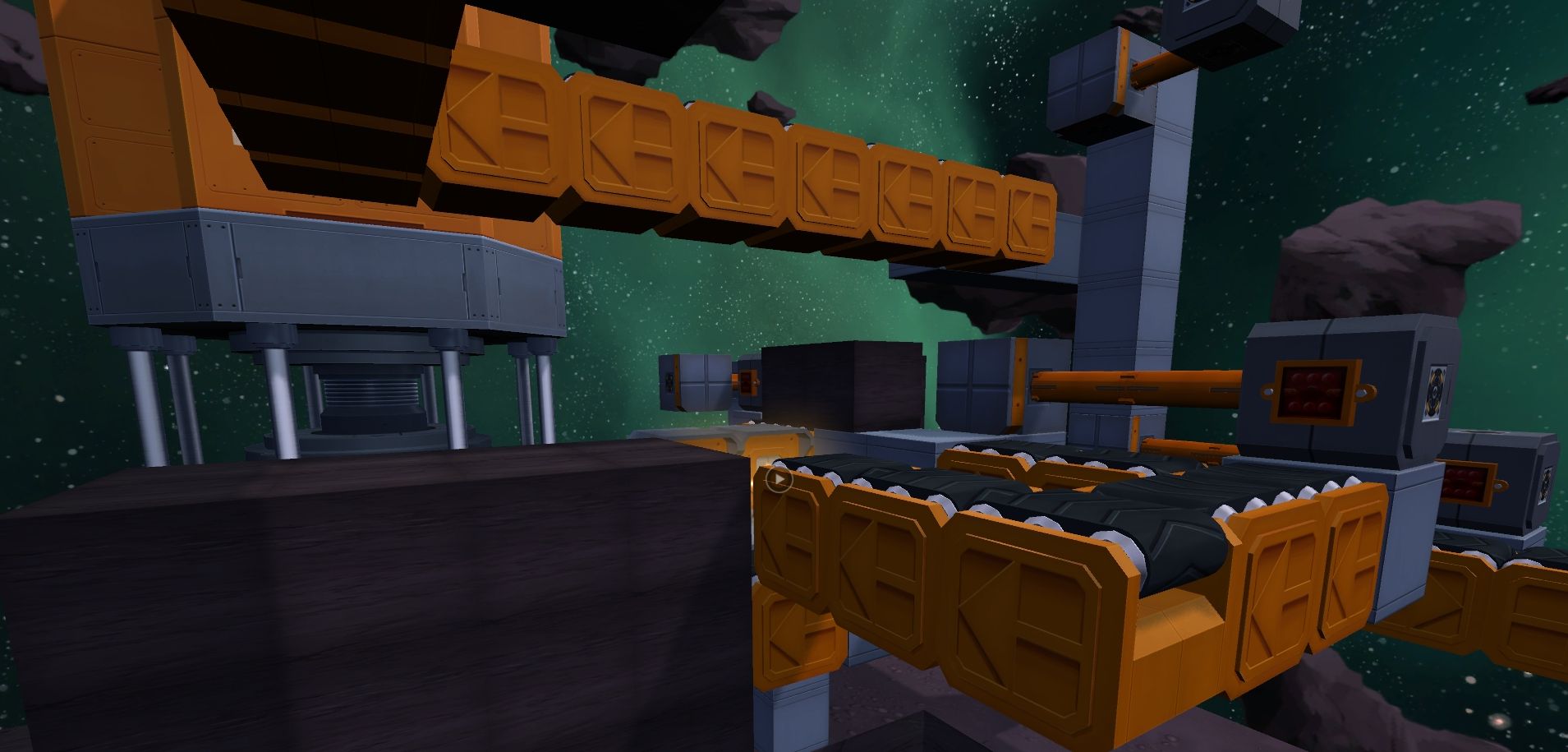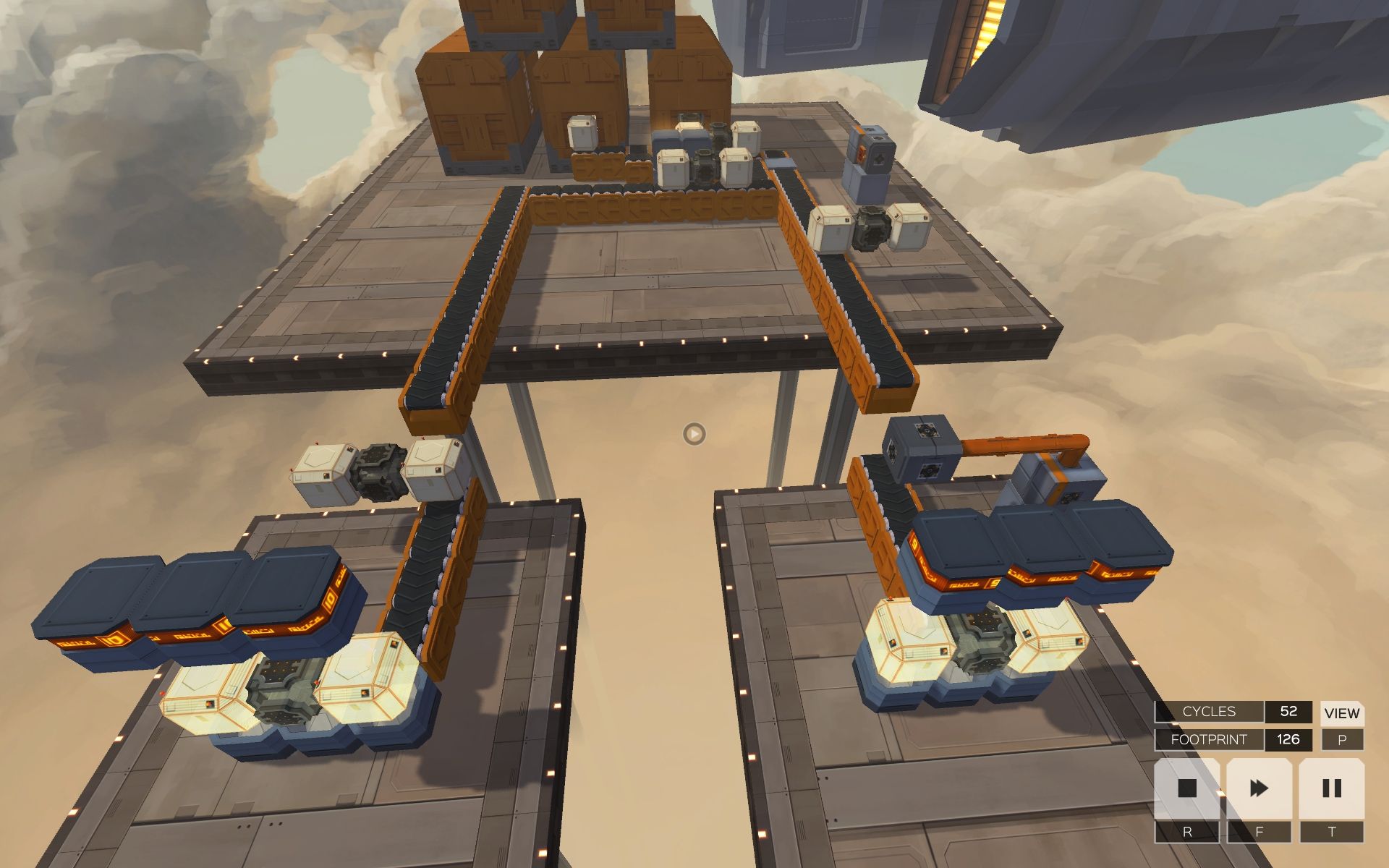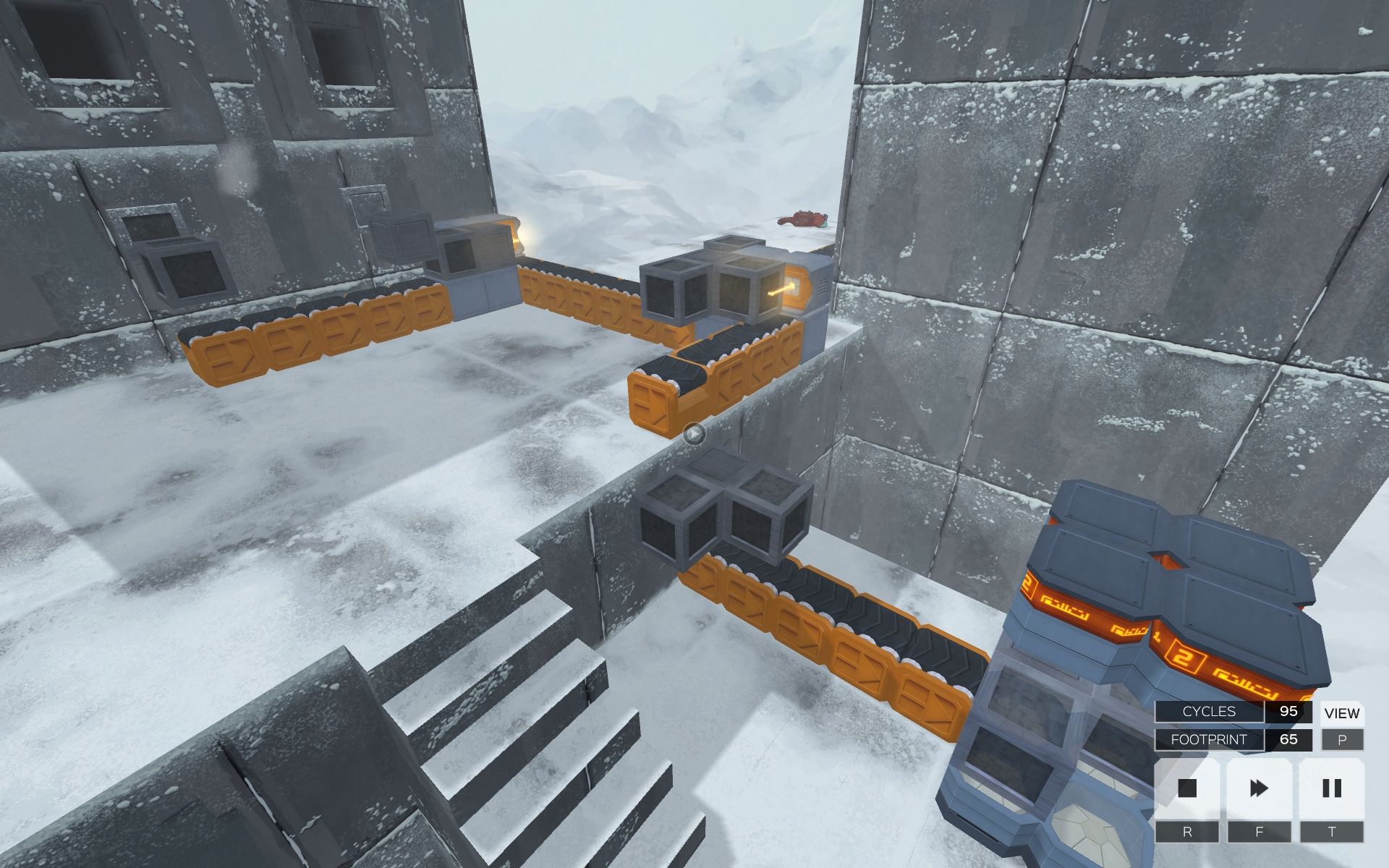Infinifactory review (Early Access)

Alpha and Early Access reviews offer our preliminary verdicts on in-development games. We may follow up this unscored review with a final, scored review in the future. Read our full review policy for details.
What is it? Complex, block-based factory construction game.
Influenced by Spacechem, Minecraft creative mode
Play it on 2GHz CPU, 2GB RAM, 256MB GPU
Alternatively Spacechem, 89%
Copy protection Steam
Expect to pay £19 / $25
Release Currently in Steam early access
Developer Zachtronics
Publisher In-house
Multiplayer Leaderboards
Link Official site
Puzzle games should confound you. The clue is in the title. The quality of these games is determined by the way you feel when you move past confusion into understanding—how excitedly you punch the air when it all clicks into place, how many honorary doctorates you consider granting yourself when a designer's logic reveals itself to you. Judged on those terms, Infinifactory is a very good puzzle game. It's so good, in fact, that it moves beyond its genre and starts to yield benefits from elsewhere. Solving a problem in Infinifactory is a creative challenge as well as an intellectual one. The game is a showcase for imagination as well as intellect.
Let's start with the basics. This is a first-person puzzle game where you construct logic-driven machines using blocky components. The name invokes Infiniminer, the game that inspired Minecraft, but Infinifactory isn't a sandbox in the same sense even though it controls much like Minecraft's creative mode. At the beginning of the game, you are abducted by aliens and set to work building factories in a variety of isolated sci-fi locales: the surface of asteroids, dystopian cityscapes, floating platforms among fleets of blocky starships.
Over the course of the campaign you unlock increasingly complex factory components that you arrange in 3D space to create functioning closed systems. Think conveyor belts, welders, pistons, walls, sensors, and cables to create if-then relationships between objects. Raw materials are spat out by dispensers that you can't move or control in any way, and you have to turn those raw materials into whatever shape is shown in the hologram that serves as the level's exit. In early levels this might simply mean delivering the right blocks to the right exits. Later, it might mean assembling an entire tank or fulfilling darker, stranger contracts still.

Infinifactory recalls SpaceChem, another ZachTronics game, in that it combines the satisfaction of building a train set with the intellectual challenge of designing a system to meet a particular challenge or quota. This is a less abstract game, however. Interactions between factory components are easier to comprehend thanks to the shift to 3D space and the inclusion of physics, which—although heavily simplified—provide a sense of weight which is a benefit both in terms of feedback and clarity.
As in Spacechem, the genius of the game is that there are no 'fixed' solutions to problems. You are given tools and a goal and told to build your own way to it. The result is a puzzle game where you feel a distinct sense of ownership over your solutions. The pride that stems from cracking a tough problem stems from a more substantial place than the vast majority of games in this genre because you haven't just bested the game's designer—you've bested yourself.
There are amusing cutscenes and moments of black humour in the design of certain missions that recall, more than anything else, Hitchhiker's Guide To The Galaxy. Infinifactory's tremendous personality, however, comes from the game's systemic elements as much as its scripted ones. Solutions express much about their creator—fastidious efficiency, subtle grace, or, in my case, a degree of slapstick incompetence that I have chosen to frame as defiance. "I refuse to comply!" I cry at my captors, my protest taking the form of a rubbish forklift factory that outputs waste in the form of superfluous wooden benches for no good reason whatsoever.
The biggest gaming news, reviews and hardware deals
Keep up to date with the most important stories and the best deals, as picked by the PC Gamer team.

Solutions are tremendously gratifying to watch no matter how accomplished they are, and there's a simple reliable joy to watching complex machines work. It's the sort of thing you'll want to share, too. Pressing F10 at any time causes the game to generate a looping gif of your factory, saved to your desktop to do with as you will. It's a brilliant inclusion.
The difficulty escalates steadily over the course of the fifteen-hour campaign, but unlike Spacechem you're never confronted with a time limit or a resource budget. It's possible to beat the game with inefficient solutions, as I have, but a tremendous challenge still remains. Topping leaderboards means building better machines, often from scratch, and excising any bad habits you've developed over the course of your first run. Spacechem forced you to examine your methods in the same way, and barred your progress through the campaign on that basis. Infinifactory makes the process optional, and it's the better game for it.
It's strange that Infinifactory is an Early Access release at all, really. This is a game with a full campaign and Steam Workshop support whose only real gesture at incompleteness is the user survey you're asked to complete at the conclusion of every level. In any other circumstance I'd be getting ready to slap a score on the end of this review. It'd be a big number, too: this is the first game of 2015 that I'd call essential. I can't wait to see what it's like when it's, er, finished.
Verdict
Challenging and satisfying, this essential puzzle game grants you a tremendous amount of creative freedom.
Joining in 2011, Chris made his start with PC Gamer turning beautiful trees into magazines, first as a writer and later as deputy editor. Once PCG's reluctant MMO champion , his discovery of Dota 2 in 2012 led him to much darker, stranger places. In 2015, Chris became the editor of PC Gamer Pro, overseeing our online coverage of competitive gaming and esports. He left in 2017, and can be now found making games and recording the Crate & Crowbar podcast.


